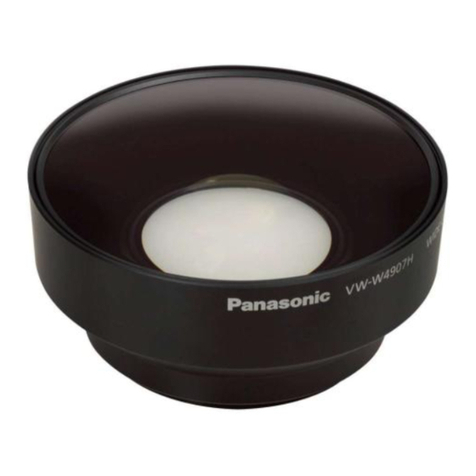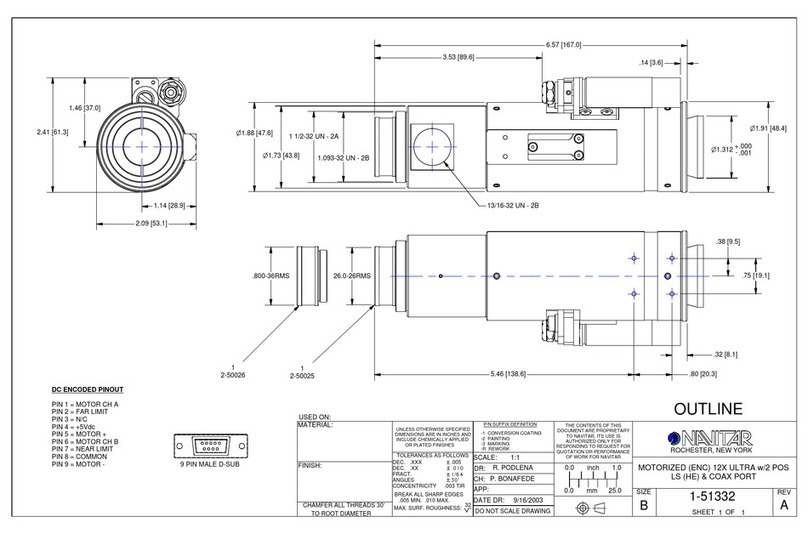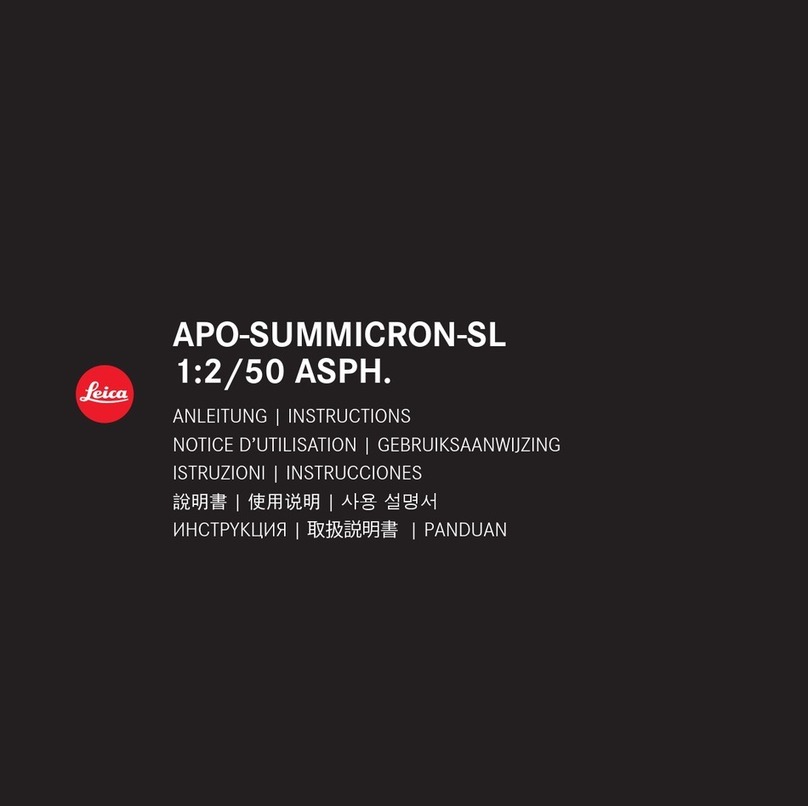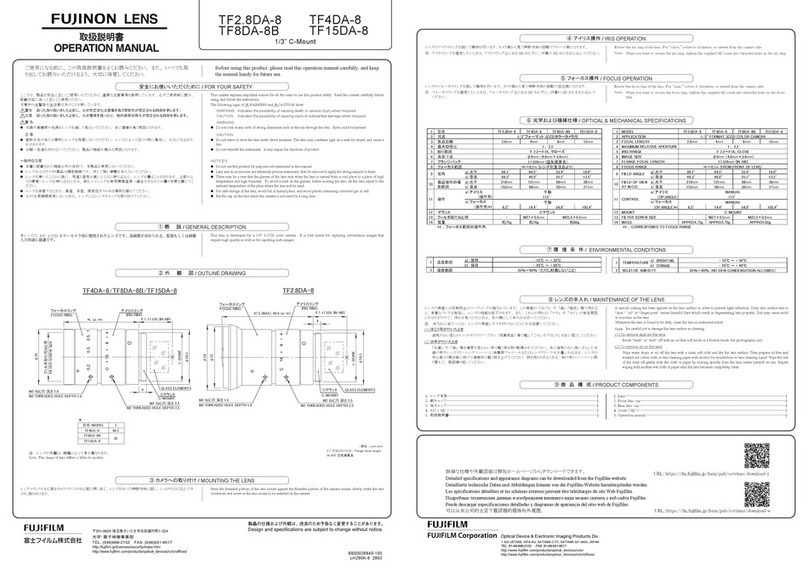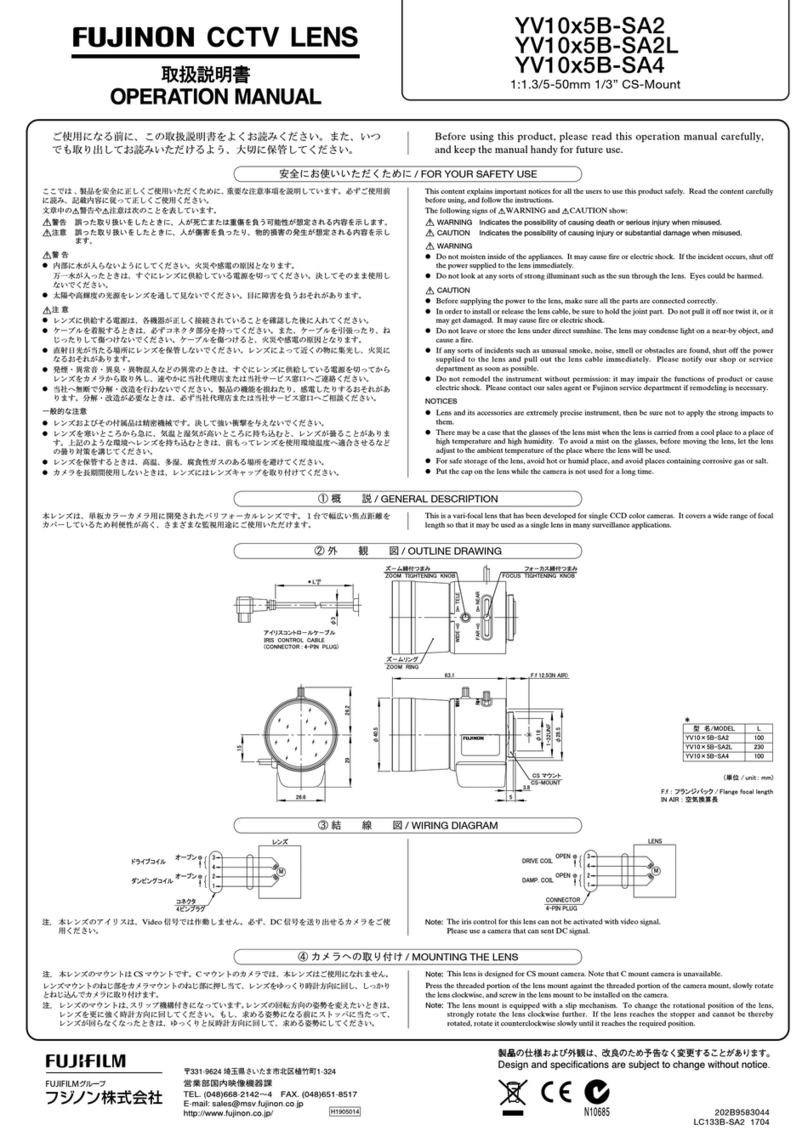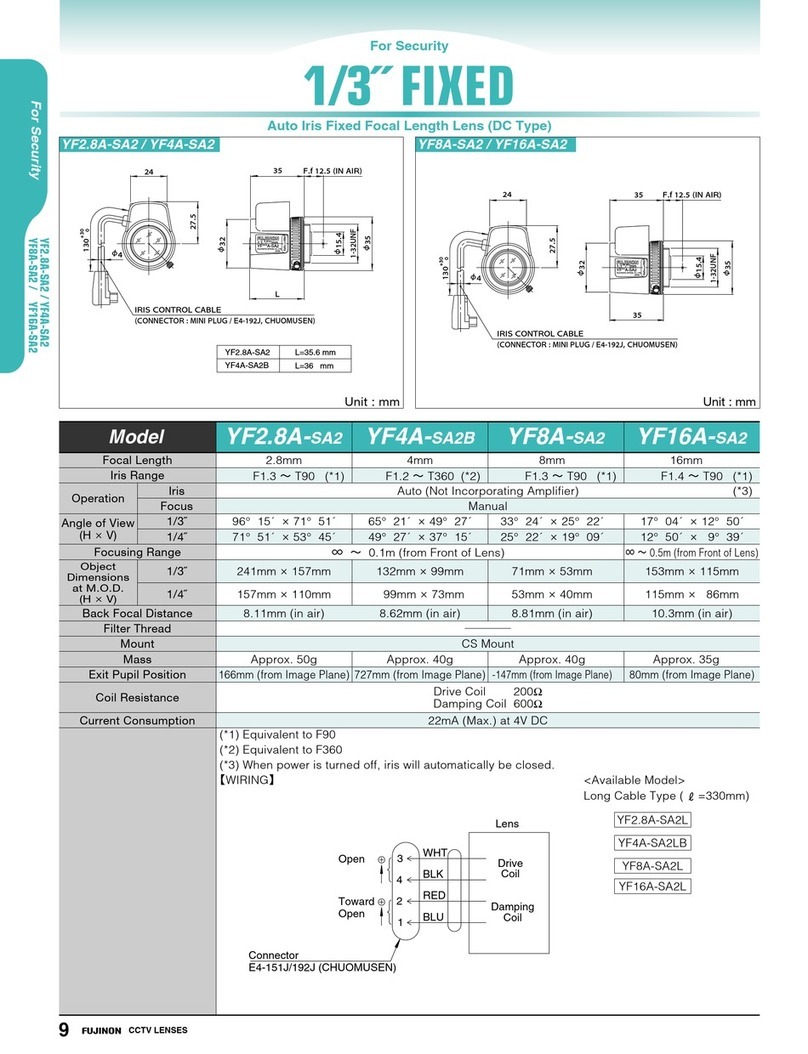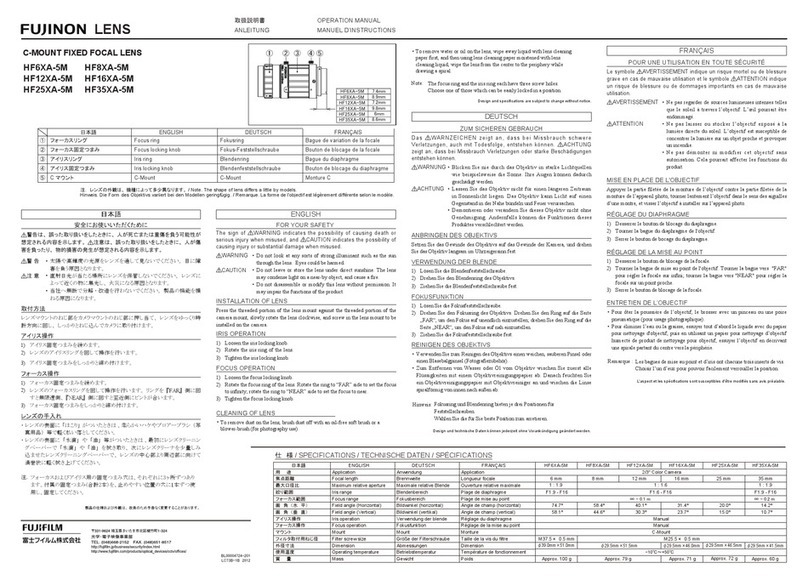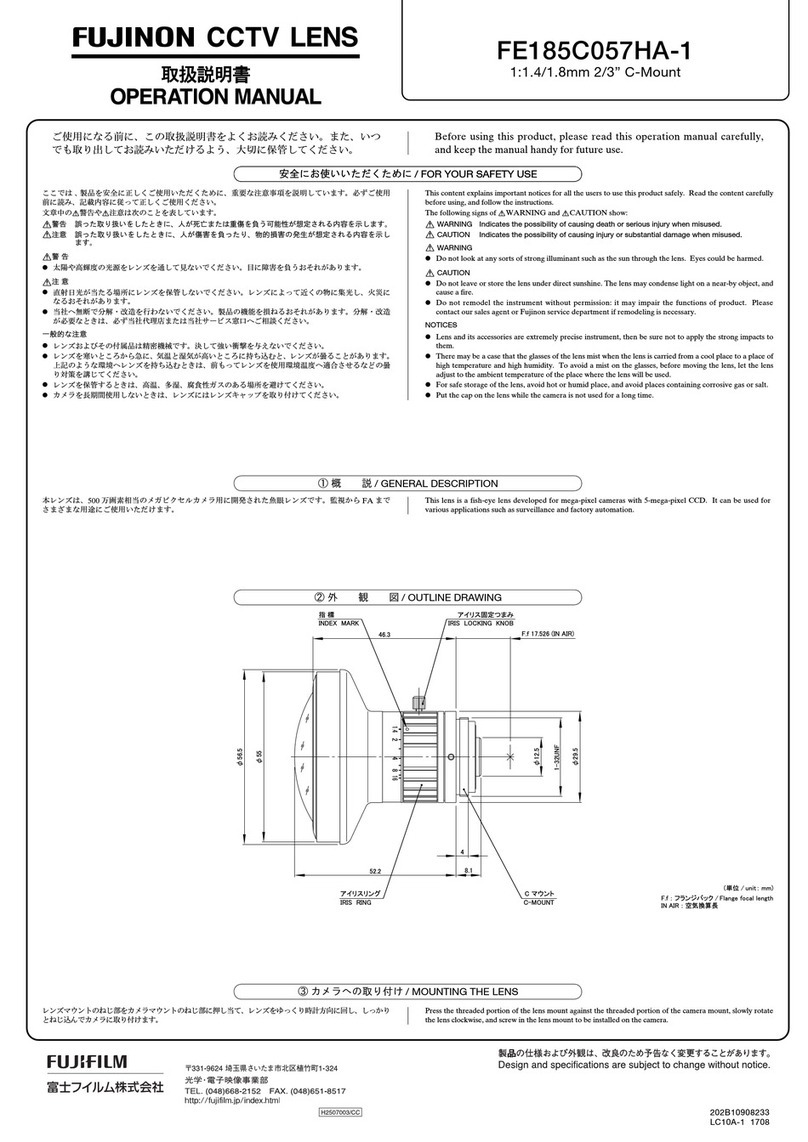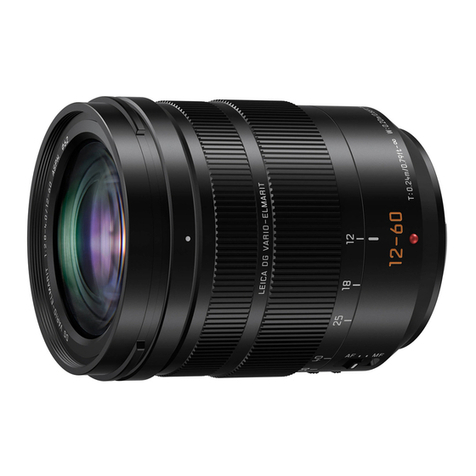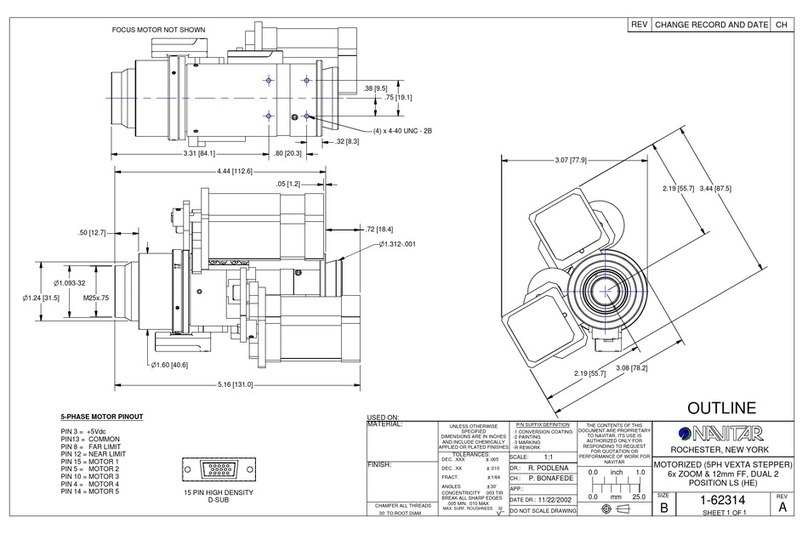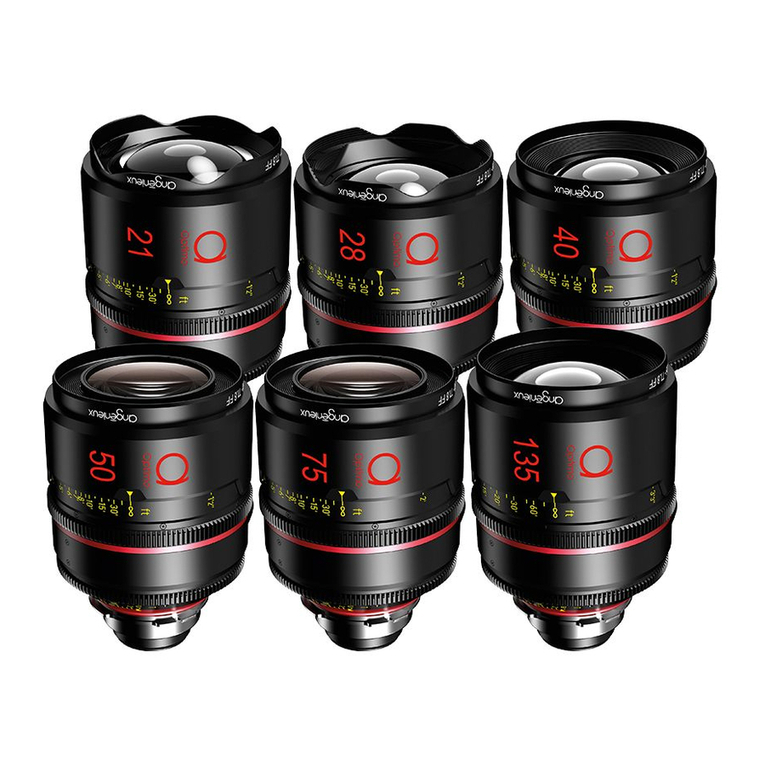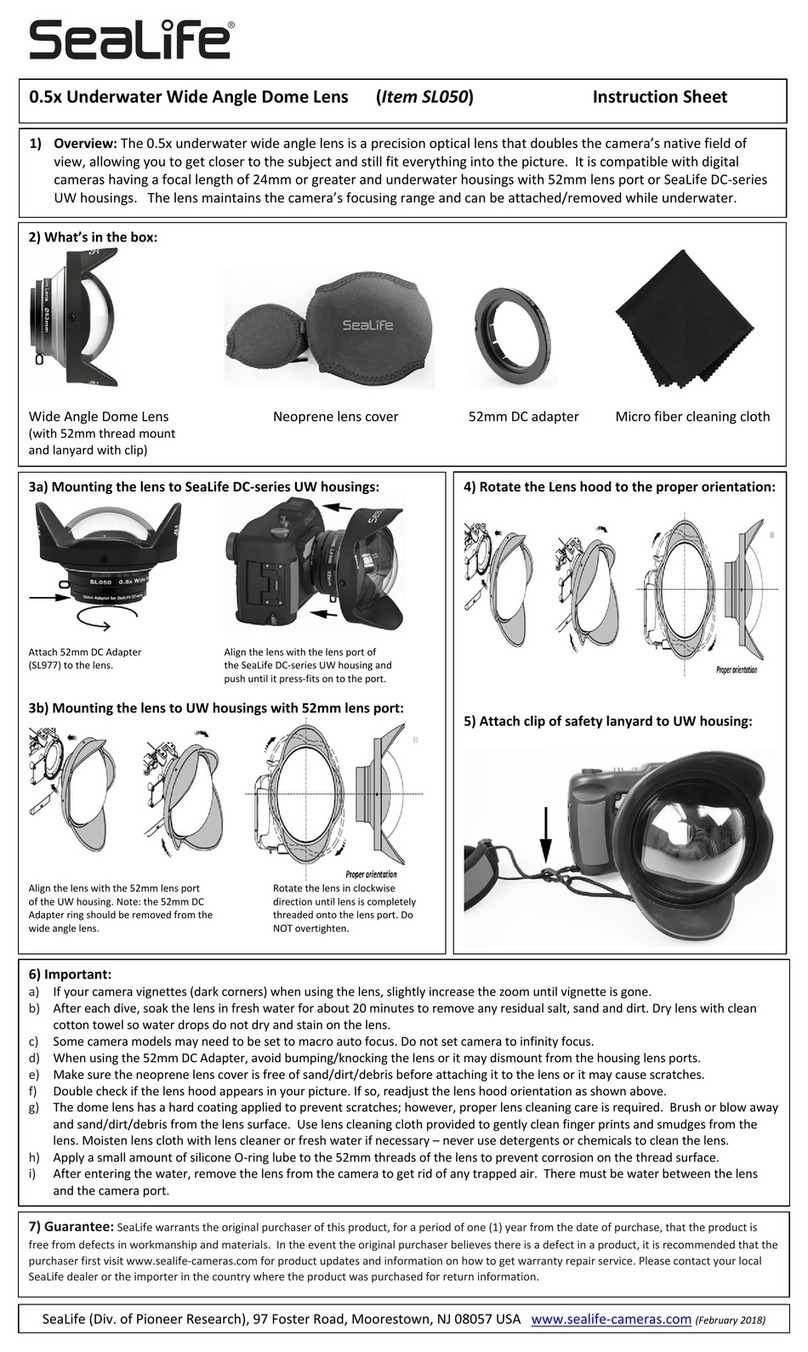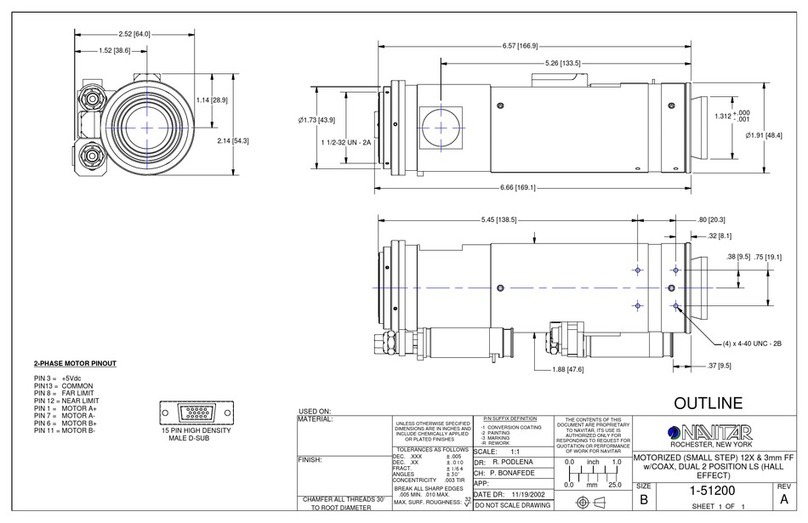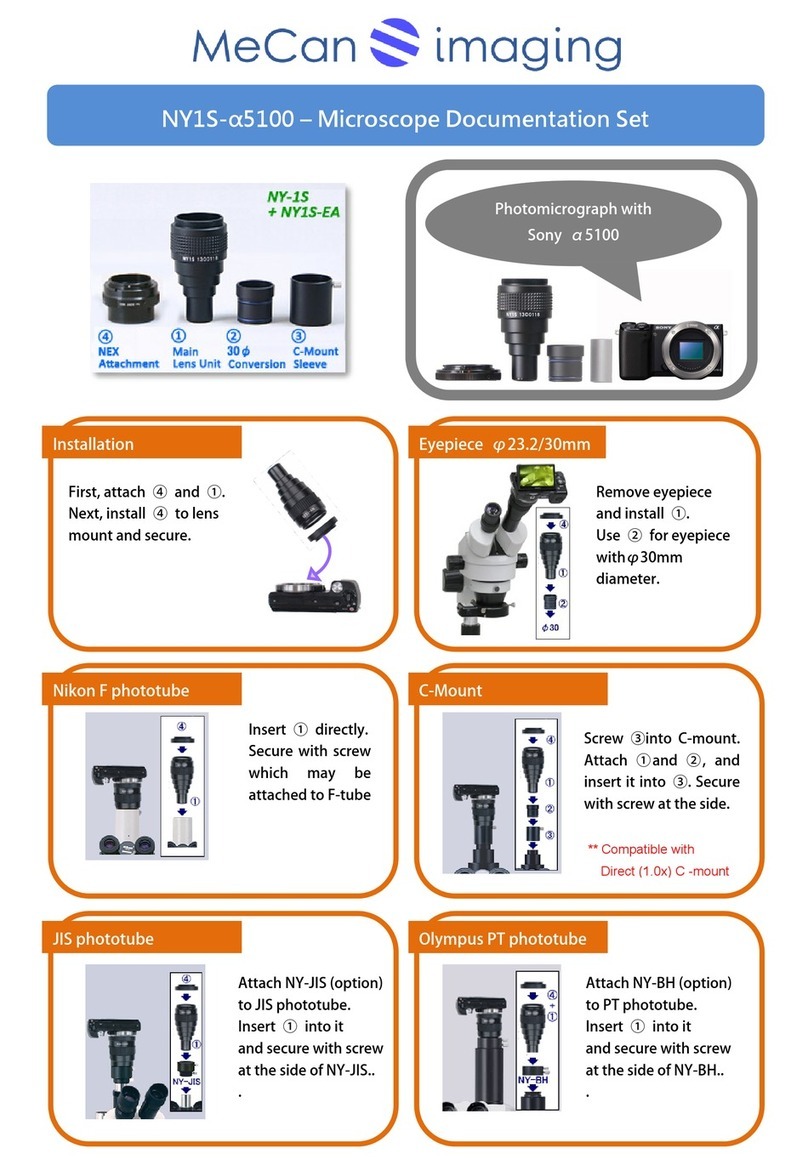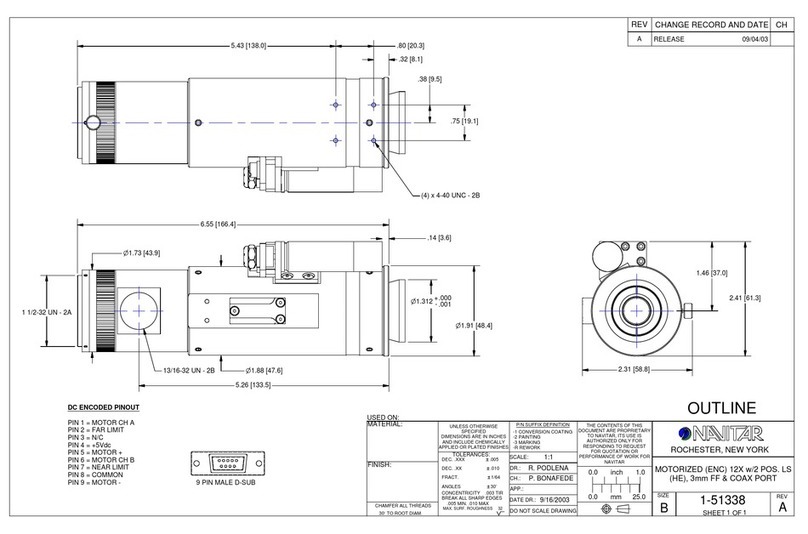
ಕȅ
ུτϋΒͺͼςΑȂVideo ൲ȃຈȂDC ιρঀ
ဥȃ
This content explains important notices for all the users to use this product safely. Read the content carefully
before using, and follow the instructions.
The following signs of ƞWARNING and ƞCAUTION show:
ƞWARNING Indicates the possibility of causing death or serious injury when misused.
ƞCAUTION Indicates the possibility of causing injury or substantial damage when misused.
ƞWARNING
ɜDo not moisten inside of the appliances. It may cause fire or electric shock. If the incident occurs, shut off
the power supplied to the lens immediately.
ɜDo not look at any sorts of strong illuminant such as the sun through the lens. Eyes could be harmed.
ƞCAUTION
ɜBefore supplying the power to the lens, make sure all the parts are connected correctly.
ɜIn order to install or release the lens cable, be sure to hold the joint part. Do not pull it off nor twist it, or it
may get damaged. It may cause fire or electric shock.
ɜDo not leave or store the lens under direct sunshine. The lens may condense light on a near-by object, and
cause a fire.
ɜIf any sorts of incidents such as unusual smoke, noise, smell or obstacles are found, shut off the power
supplied to the lens and pull out the lens cable immediately. Please notify our shop or service
department as soon as possible.
ɜDo not remodel the instrument without permission: it may impair the functions of product or cause
electric shock. Please contact our sales agent or Fujinon service department if remodeling is necessary.
NOTICES
ɜLens and its accessories are extremely precise instrument, then be sure not to apply the strong impacts to
them.
ɜThere may be a case that the glasses of the lens mist when the lens is carried from a cool place to a place of
high temperature and high humidity. To avoid a mist on the glasses, before moving the lens, let the lens
adjust to the ambient temperature of the place where the lens will be used.
ɜFor safe storage of the lens, avoid hot or humid place, and avoid places containing corrosive gas or salt.
ɜPut the cap on the lens while the camera is not used for a long time.
¥ ୋհୃঀဥȂါಕփমࣜ୰ྶȃຈঀဥ
ஜඋȂܱඤယୃঀဥȃ
ડಎƞ࠙࣬ƞಕփষນȃ
ƞ࠙࣬ ࢋ৾եȂ૽ঘཌخෝேඤယাȃ
ƞಕփ ࢋ৾եȂ૽ٺȂഎఅٺอேඤယা
ȃ
ƞ࠙࣬
ɜඤ໐କවȃغۜഩࡔ֦ȃ
ྔ֚କවȂτϋΒރݯഩ࡙୨ȃࠨঀဥ
ȃ
ɜఊုࣞܵഽ࡙τϋΒࡉȃ࿒વٺȃ
ƞಕփ
ɜτϋΒރݯഩ࡙Ȃڎܥܕୃ୪ږࢃවȃ
ɜΉȜήσȂຈΥ·Η໐ȃȂΉȜήσ֨ಫȂ
ȃΉȜήσȂغۜഩࡔ֦ȃ
ɜೄৣ൚ાτϋΒ༗ۯȃτϋΒ߃Ȃغ
ȃ
ɜอȆ։ુإȆ։Ȇ։ව։ુȂτϋΒރݯഩ࡙୨
τϋΒιρ৾ٸȂ௸൚২యၑഝ൚২ȜΫΑௗ࢛Ⴒ၁ȃ
ɜ൚২ྫ౯ٜȆ٨௮࣐ȃୋܥෝఅȂۜഩ
ȃٜȆ٨௮ຈါȂຈ൚২యၑഝ൚২ȜΫΑௗ࢛ȃ
๊֚എಕփ
ɜτϋΒັ௺ୈྟܥ٫ȃࠨޑࠢဓȃ
ɜτϋΒێݢȂܨأܨࣺࣞȂτϋΒචȃ
ષܱ۪ޏτϋΒࣺȂஜτϋΒঀဥ۪ޏأഽഐࣣච
చ࣒ȃ
ɜτϋΒ༗ۯȂࣞأȂఉȂແ΄Αાȃ
ɜιρಿܢۼঀဥȂτϋΒτϋΒ΅λΛί৾ັȃ
Note: The iris control for this lens can not be activated with video signal.
Please use a camera that can sent DC signal.
հঀ / FOR YOUR SAFETY USE
ӳࠫȁȁȁȁ / WIRING DIAGRAM
Ӳٸȁȁ۷ȁȁ / OUTLINE DRAWING
Note: This lens is designed for CS mount camera. Note that C mount camera is unavailable.
Press the threaded portion of the lens mount against the threaded portion of the camera mount, slowly rotate
the lens clockwise, and screw in the lens mount to be installed on the camera.
Note: The lens mount is equipped with a slip mechanism. To change the rotational position of the lens,
strongly rotate the lens clockwise further. If the lens reaches the stopper and cannot be thereby
rotated, rotate it counterclockwise slowly until it reaches the required position.
ಕȅ
ུτϋΒζ;ϋΠ CS ζ;ϋΠȃCζ;ϋΠιρȂུτϋΒঀဥȃ
τϋΒζ;ϋΠ໐ιρζ;ϋΠ໐؋൚ȂτϋΒশ༷ࠗ࢜ٝȂ
ࣺιρ৾ັȃ
ಕȅ
τϋΒζ;ϋΠȂΑςΛίܥࢹັȃτϋΒٝഢ༷࢜উସ་Ȃ
τϋΒࢵޑশ༷ࠗ࢜ٝȃȂݥউସஜΑΠΛΩ൚Ȃ
τϋΒٝȂশ༷ࠗ࢜ٝȂݥউସȃ
Ӵιρ৾ັ / MOUNTING THE LENS
㱢㪊
㪈㪌
㪈㪄㪊㪉㪬㪥㪝
㱢㪈㪏
㱢㪉㪏㪅㪌
㪌㪏㪅㪍
㱢㪋㪇㪅㪌
㪉㪍㪅㪍
㪉㪐 㪉㪍㪅㪉
㪝㪅㪽㩷㪈㪉㪅㪌㩿㪠㪥㩷㪘㪠㪩㪀
㪊㪅㪏
㪌
㪚㪪㩷䊙䉡䊮䊃
㪚㪪㪄㪤㪦㪬㪥㪫
䉵䋭䊛䊥䊮䉫
㪱㪦㪦㪤㩷㩷㪩㪠㪥㪞
䊐䉤䋭䉦䉴✦ઃ䈧䉁䉂
㪝㪦㪚㪬㪪㩷㩷㪫㪠㪞㪟㪫㪜㪥㪠㪥㪞㩷㩷㪢㪥㪦㪙
䉵䋭䊛✦ઃ䈧䉁䉂
㪱㪦㪦㪤㩷㩷㪫㪠㪞㪟㪫㪜㪥㪠㪥㪞㩷㩷㪢㪥㪦㪙
㪮㪠㪛㪜 㪫㪜㪣㪜
㪠㪩㪠㪪㩷㩷㪚㪦㪥㪫㪩㪦㪣㩷㩷㪚㪘㪙㪣㪜
㩿㪚㪦㪥㪥㪜㪚㪫㪦㪩㩷㪑㩷㪋㪄㪧㪠㪥㩷㩷㪧㪣㪬㪞㪀
䉝䉟䊥䉴䉮䊮䊃䊨䋭䊦䉬䋭䊑䊦
㪥㪜㪘㪩
㪝㪘㪩
䋪㪣㪂㪊㪇
㪇
㪝㪅㪽 䋺 䊐䊤䊮䉳䊋䉾䉪 㪆 㪝㫃㪸㫅㪾㪼㩷㪽㫆㪺㪸㫃㩷㫃㪼㫅㪾㫋㪿
㪠㪥㩷㪘㪠㪩 䋺 ⓨ᳇឵▚㐳
䋨න 㪆 㫌㫅㫀㫋䋺 㫄㫄㪀
ဳ㵘ฬ㪆㪤㪦㪛㪜㪣
䋪
㪰㪭㪈㪇㬍㪌㪩㪋㪘㪄㪪㪘㪉
㪰㪭㪈㪇㬍㪌㪩㪋㪘㪄㪪㪘㪉㪣
㪣
㪈㪇㪇
㪉㪊㪇
㪦㪧㪜㪥
㪦㪧㪜㪥
㪛㪘㪤㪧㪅㩷㪚㪦㪠㪣
㪤
㪣㪜㪥㪪
㪊
㪋
㪉
㪈
㪛㪩㪠㪭㪜㩷㪚㪦㪠㪣
㪚㪦㪥㪥㪜㪚㪫㪦㪩
㪋㪄㪧㪠㪥㩷㪧㪣㪬㪞
䉥䊷䊒䊮
䉥䊷䊒䊮
䉻䊮䊏䊮䉫䉮䉟䊦
㪤
䊧䊮䉵
㪊
㪋
㪉
㪈
䊄䊤䉟䊑䉮䉟䊦
䉮䊈䉪䉺
㪋䊏䊮䊒䊤䉫
YV10x5R4A-SA2
YV10x5R4A-SA2L
1:1.6/5-50mm 1/3” CS-Mount
This lens is designed to minimize the difference between the focus position with a visible radiation and that
with a near-infrared radiation, by our original optical correction system. Therefore, it can be used for a
day/night camera, which can be used as a color camera in the daytime and a high-sensitivity monochrome
camera at night, as well as an ordinary camera.
ུτϋΒȂඅڠ΄ρΑဥȂخণ֖ঀဥশ߃ٸ֖ঀဥশάϋΠΒτࡠ
ဲ୭ࠗȃ
Ȃ๊֚ CCTV ιρဥτϋΒȂಓۼρȜιρȂۼࣞۜഽκΦ
·υιρဥঀဥȶΟͼͼΠιρȷဥτϋΒഐȃ
ӱٽȁȁ୰ / GENERAL DESCRIPTION
202B10908331
LC134A-SA2 1703
ঀဥஜȂ৾ե୰ྶඋȃȂ
৾උȂఱ୨༗ۯȃ
Before using this product, please read this operation manual carefully,
and keep the manual handy for future use.

